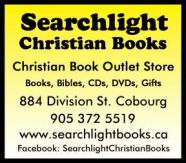The chart that follows was produced many years ago by Thomas Nelson. It may exist online now, but when I tried to track it down about a year ago I couldn’t locate it; so I was quite pleased to find it yesterday in a pile of papers.
Many of the suggested Bible reference tools listed below are now available online, to the point where it’s possible to need a particular nugget of information, and not necessarily classify it as to the type of information required. The internet probably blurs the distinctions below.
Look at the graphic and then scroll down for my comments on each element. Click the image to view full size.
Tier One – The Bible itself is foundational and there’s no point building a library about it without actually owning several good ones.
Tier Two – Concordances — listing occurrences of particular words in particular translations — are somewhat obsolete with what our desktop computers and phones can do. Still, a dictionary of Bible terms is helpful, but you need to be careful you’re not using a theological or religious dictionary. For example, the term trinity isn’t found in scripture, so a Bible dictionary won’t necessarily contain it. However, that may be the very thing you wish to examine, so then you’d want to additionally own a Bible dictionary, or find a Bible encyclopedia that combines both.
Tier Three – I think that every Christian should have some familiarity with an in-depth commentary; the type that focuses on a single book, or the one-volume kind. Again, if you’re doing this online instead, you need to know it’s commentary you’re looking for. I would also argue that a Bible handbook, providing summaries of each book, should be moved up a tier. It’s something that new Christians often find most helpful. Word Study is a challenging field referring the etymology (origin) of key words in the original (Greek and Hebrew) languages and not everybody is ready for it. Still it’s good to have experience seeing how these books are constructed, or online, knowing it’s word study you’re looking for.
Tier Four – Right now books on life in Bible times are very much in demand as people seek to better understand the context and culture which brings passages to life. The second suggested resource, a study guide is probably what you already use in your home church group during the week and I expect the suggestion here is that you would be collecting many of these as you work through particular books. Bible maps are something I never placed great importance in, but I’m now seeing the value of them more than I did in my early Christian experience. Topical Bibles are helpful; even if you’re doing a verse-by-verse look at scripture it’s good to pause and consider the themes the passage presents in greater detail.
Omitted – The chart makes no reference to the devotional genre, which I believe is necessary to make the Bible personal; otherwise all these books are just about hoarding information. I would also contend that in building a library like the one envisioned here, a foundational book on apologetics would be good to own. Others might argue that a prayer guide, such as Operation World are fundamental to the realization that the Church of Jesus Christ extends far beyond our local congregation, our region or even our nation. For those who have pursued a formal Christian education, the lack of a book on systematic theology is probably the most glaring omission. There are some books which simplify this and help new believers see the various pieces of the puzzle.











